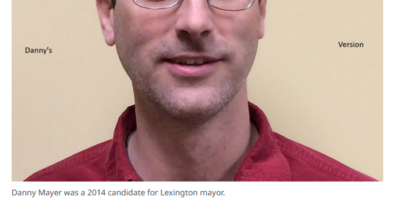The leek: a satirical take
By Horace Heller Hedley, IV
In a bold move to open more payment options for financially strapped customers, Anthem Blue Cross will allow subscribers to pay premiums by offering their vital organs to the insurance giant. The new program, dubbed “Kidneys for Koverage,” provides a variety of flexible options, allowing both healthy and ailing customers to derive monetary value from their functioning organ systems.
“We asked ourselves, ‘Those subscribers who can’t afford monthly premiums — where are their untapped assets?’” said Ronald Hilfinger, Director of Customer Relations. “Their houses are mostly sold already—especially our customers in poor health. But with a healthy kidney going for $150,000, the average person’s most valuable asset is their excess organ capacity. Since we already had access to an extensive network of surgeons, it was a natural fit.”
Anthem’s team created a menu of options for customers interested in cashing in on their physiological assets. High-end options involve exchanging working organs for lifetime insurance coverage by Anthem. Complete, fully-functioning organs earn the best coverage — for example, a healthy kidney earns lifetime membership in Anthem’s comprehensive “360-Degree Plan.” Tissue contributions not requiring the member to sacrifice an intact organ — a segment of liver tissue, or a lobe of a lung — purchase a high-deductible plan. Subscriptions are also available, where periodic contributions of skin or bone marrow offset monthly premium payments. The insurer will also offer small discount vouchers for plasma donation.
Industry insiders have reported that the Kidneys for Koverage initiative faced bitter opposition inside Anthem’s corporate boardroom. “KfK is an actuary’s nightmare,” said a former Anthem executive who asked not to be identified. “Can you imagine trying to price out this monstrosity? You’ve got the value of the organ in the world’s most volatile market, weighed against the cost of benefits that we’re giving away to the donor. Maybe it slipped their minds that people with one kidney get sick a lot, and they’re on the hook for it! And can you imagine how people will cheat selling their organs? Has anyone in that boardroom ever bought a used car?”
But in fact Anthem performed painstaking analyses to identify such financial pitfalls, and attempted to hedge against them in the KfK cost structure. Several cost-containment measures were considered but ultimately rejected, sometimes out of concern that they could create public-relations difficulties. “Depreciating the kidney’s value as its recipient aged got voted down,” said another anonymous source within Anthem. “Organ rental was a non-starter. We couldn’t cover the cost of removing the organ from the subscriber, installing it in the recipient, pulling it out again when they died, then re-installing it in the subscriber. Plus, we didn’t think subscribers would be crazy about resuming paying their insurance premiums once they got their organ back. Letting parents use their own organs to pay for their kids’ coverage market-tested very well. But we decided that we’d better get our feet wet with the simple one body/one premium model before getting our operating rooms swamped.”
Anthem will be requiring extensive performance testing of organs before accepting them as payment. An anonymous Anthem manager involved in Pre-Owned Organ Certification suggested that this was a prudent move. “This kidney I checked the other day — the owner had told me it was real clean, and it Blue Booked at around $75k. We ran the labs, and man, that thing was throwing creatinine like you never saw. Chronic nephritis — right there in the maintenance records. Before we make the deal, we really gotta kick the tires.”
Ronald Sarandon, President and CEO of Anthem, defends the KfK program as consistent with corporate ideals. “Look, we knew this program would raise some eyebrows. But we see it as a values issue. At Anthem, we value access to health care. Illness knows no boundaries of income. Rich or poor, you can’t just buy yourself a healthy kidney. Well, you can…but it will really set you back.”
The program is being watched carefully by Anthem’s competitors, and some beyond the health care industry are considering adopting the model. Interested parties include Bank of America’s mortgage unit, and Wells Fargo’s student loan division.




Leave a Reply